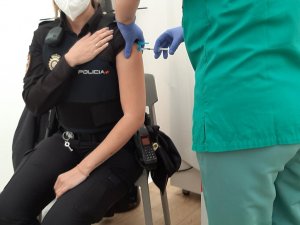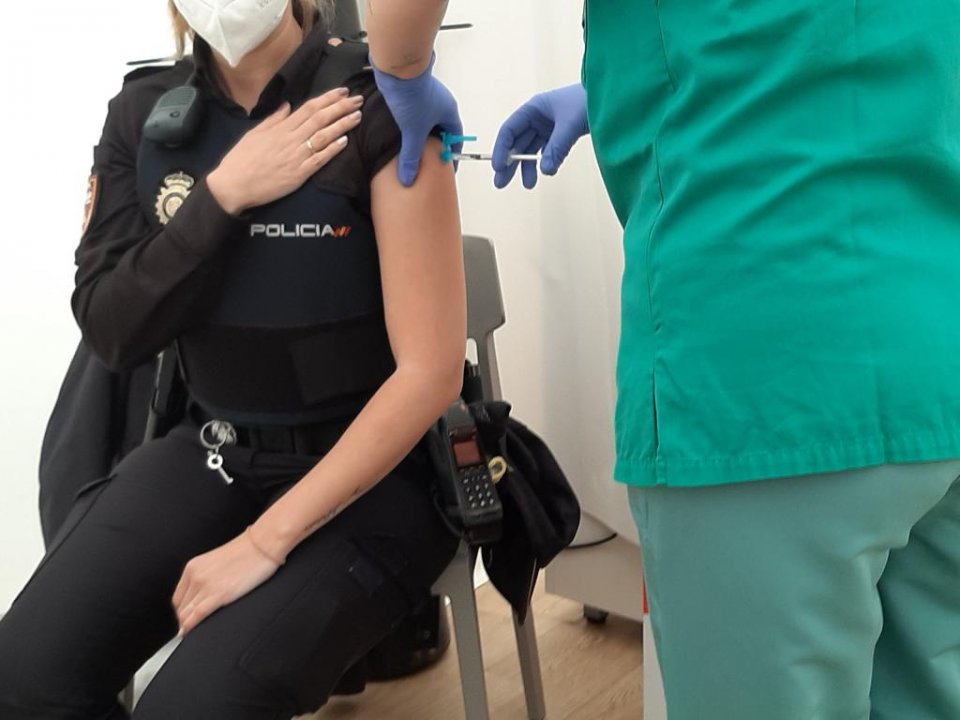Latest: Coronavirus in Spain figures (5 Mar)
ALSO READ: Details of curfews & restrictions for all regions of Spain during ‘State of Alarm’
Please support Spain in English with a donation
Click here to get your business activity or services listed on our DIRECTORY
Report below updated in Spain at 18.45h on Mon 1 Mar
CORONAVIRUS in SPAIN – latest Health Ministry figures
The latest official figure released by the Spanish Health Ministry on Monday 1 March for the number of people who have tested positive for Coronavirus since the start of the pandemic is now 3,204,531. This is an overall increase of 15,978 against the figure released on Friday – now a fifth consecutive drop in the rate of increase in weekend figures. Last Monday the figure had been 20,849 for the weekend, and the previous weekend 30,251.
The ministry claims that 1,159 of these infections have occurred in the past 24 hours. The peak of recorded infections for a 24-hour period during this ‘third wave’ of the pandemic in Spain was on 21 January, when 18,504 cases were registered. During the ‘first wave’, it was on 31 March when 9,222 cases were registered.
Friday had seen an overall increase of 8,341 over Thursday, with the ministry claiming that 3,052 had occurred in a 24-hour period. Thursday had seen an overall increase of 9,568 over Wednesday, yet 3,350 in 24 hours.
The overall incidence rate for Spain is now 175.63 per 100,000 inhabitants for the past 14 days – the lowest it has been since last August. On Friday it was 193 and last Monday 252. Only Madrid (284) has an incidence rate higher than the ‘extreme risk’ level of 250 – as well as in the autonomous cities of Melilla (367) and Ceuta (264). It is at its lowest in Extremadura (56), followed by the Balearic Islands (81), La Rioja (82) and then Murcia (98).
There have now been 82,591 cases of Coronavirus detected in the past 14 days – out of the total 3,204,531. The figure for the past 7 days is 33,863.
There are currently 11,754 people requiring hospital treatment for Covid-19 in Spain, of which 2,923 are in intensive care. This represents 28.09% occupation of intensive care units (ICUs) by Covid-19 patients across Spain. It is at its highest in Madrid at 43.4%, followed by Catalonia at 39%.
The official figure for the total number of Coronavirus-related deaths on Monday 1 March is now 69,609 – an increase of 467 since Friday. It is now a total of 665 deaths in the past 7 days.
The highest increase of deaths for a 24-hour period during this ‘third wave’ in Spain was on 9 February when 766 were registered. The peak of deaths during the ‘second wave’ was on 24 November when 537 were registered. During the ‘first wave’ it was on 2 April when 950 were registered.
Vaccinations given
Latest figures (up to 1 March) show that Spain has received 4,508,845 doses of Covid-19 vaccines (from Pfizer-BioNTech, Moderna and AstraZeneca), and that 3,829,465 jabs have been administered. This is 84.9% of total vaccines received. 1,261,848 people have now received a second jab. In a separate report, we have published the amount of vaccines received and administered for each region in Spain. Latest: Covid-19 Vaccinations in Spain
Increase in infections per region
Of the 1,159 new infections claimed by the Health Ministry to have only been registered in the past 24 hours on Monday 1 March, the numbers per region are as follows:
- 212 in the Basque Country (last 24 hour increase was 308)
- 176 in Madrid (1,077)
- 138 in Castilla y León (230)
- 101 in Asturias (150)
- 96 in the Canary Islands (200)
- 86 in Andalusia (204)
- 79 in the Valencia Region (181)
- 64 in Aragón (204)
- 42 in Navarra (50)
- 39 in Cantabria (44)
- 31 in Galicia (113)
- 26 in the Balearic Islands (34)
- 26 in Murcia (45)
- 13 in La Rioja (16)
- 12 in Extremadura (37)
- 3 in Castilla La Mancha (29)
- 0 in Catalonia (101)
- 10 in Ceuta (14)
- 5 in Melilla (15)
A full breakdown of the data per region, together with age group statistics can be found by clicking here.

Covid-19 Vaccination Strategy in Spain
Since 27 December, Spain has been administering jabs against Covid-19, first using the Pfizer/BioNTech vaccine, then from 13 January also with the Moderna vaccine. The AstraZeneca vaccine has also been used from 9 February but it is not being administered to citizens aged over 55.
The second phase of Spain’s three-phase Vaccination Strategy has now started, although the government and regional health authorities have adapted the initial plans to changing circumstances. For our most recent report on the groups during the second phase, click here: Spain will administer AstraZeneca vaccine to 45-55 year olds in 2nd phase. For the latest data on the number of vaccines received and administered per region in Spain, click here: Covid-19 Vaccinations in Spain
Current ‘State of Alarm’ – restrictions across Spain
Spain voted to extend its current State of Alarm until 9 May 2021. The State of Alarm was initially declared last October to enable the regional governments the legal requirements to impose and enforce nighttime curfews and other restrictions, where required. Full details here: New ‘State of Alarm’ in Spain.
In a separate report and being regularly updated, we have detailed all the curfew times and key restrictions in place for each region of Spain. Most regions have issued border closures and there are many municipality confinements. Many regions have also restricted the opening hours of bars and restaurants, or ordered their closure. Click here: Details of curfews & restrictions for all regions of Spain during ‘State of Alarm’
Covid-19 test requirements for travellers arriving to Spain
Also read: Spain suspends flight arrivals from UK, except for Spanish citizens and residents
Spain changed the Covid-19 test requirements for travellers arriving to the country from Thursday 10 December, via airports or ports. Since Monday 23 November, travellers arriving in Spain from high-risk countries had to show proof of a negative PCR test done within 72 hours of arrival. A negative result from a TMA (Transcription-Mediated Amplification test) is now also valid, ‘and other tests based on equivalent molecular techniques’. Full report here: Spain changes Covid-19 test requirements for travellers.
Click here for all previous reports on: Coronavirus in Spain
ALSO READ: Details of curfews & restrictions for all regions of Spain during ‘State of Alarm’
Sign up for the FREE Weekly Newsletter from Spain in English
Please support Spain in English with a donation.
Click here to get your business activity or services listed on our DIRECTORY


